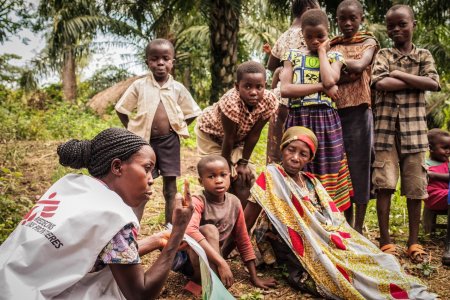
Grounds for divorce ? MSF and the international criminal court
Françoise Bouchet-Saulnier
In 1998 MSF decided to support the creation of the International Criminal Court. Whether as victims or witnesses, it seemed obvious that we should participate in this initiative in the name of the protection of populations and the construction of a ‘more just international public order'. 10 years later MSF stated that it ‘would not cooperate and would not transmit any information to the ICC'. The organisation needs to keep its distance from the ICC, as from any other political body.
How can we explain this change of position? Is it Justice or MSF that has broken its promises? What is our position regarding the arrest warrant issued in March 2009 against the President of Sudan and the consequent retaliation against NGOs working in Darfur? Françoise Bouchet-Saulnier looks back at the relations between MSF and judicial proceedings, the theme of a publication in the Cahier du Crash series in 2007 by Fabien Dubuet.
Table of contents
1. Introduction
2. Legal testimony, an extension of humanitarian advocacy
3. MSF's reaction to the creation of the International Criminal Tribunal for ex-Yugoslavia
4. Testimony of a an MSF volunteer at the International Criminal Tribunal for Rwanda
5. Why and how not to testify ?
6. The turning point of the ICC
7. MSF's position in 2004
8. The question of individual testimony
9. How does the ICC impact MSF's public communication policy?
10. Testimony and punishment
11. NGOs, Human Rights organisations and the ICC/ Comment by Kate McIntosh, MSF Holland
12. The difference between being a direct eye witness and passing on second-hand information/ Rony Brauman
13. Remain silent or testify ?
14. What are the confusions about relations between MSF and the ICC ?
15. MSF : perpetually evolving policies
16. MSF : the weak link on the international stage ?
17. Fight against impunity or punishment ?
To cite this content :
Françoise Bouchet-Saulnier, “Grounds for divorce ? MSF and the international criminal court”, 8 avril 2009, URL : https://msf-crash.org/en/conferences-debates/grounds-divorce-msf-and-international-criminal-court
If you would like to comment on this article, you can find us on social media or contact us here:
ContributePast events
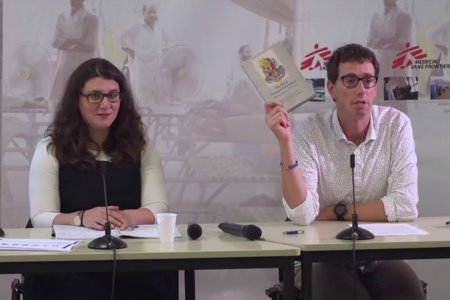 MSF
Conference
MSF
Conference
Humanitarian anthropology : conference with Sharon Abramowitz
10/23/2017 - 06:00 PM 08:00 PMSharon Abramowitz is an anthropologist and a visiting researcher at the Department of Anthropology at Rutgers University, co-editor of recently published Medical humanitarianism. Ethnographies of practice. She has devoted much of her work to responding to epidemics - most recently in Ebola, and in West Africa, Liberia in particular.
During the conference organized by MSF-Crash on 23 October 2017, she discussed the contribution of medical anthropology to humanitarian action as well as her latest book and most recent projects.
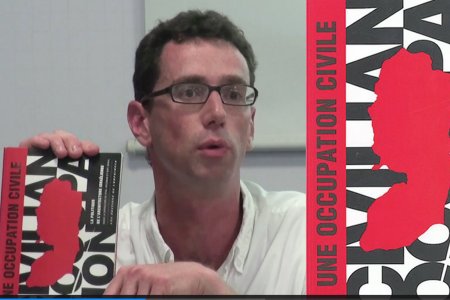 Conference
Conference
Eyal Weizman - Forensic Architecture at work
02/15/2016 - 07:00 PM 09:30 PMEyal Weizman, the founder of « Forensic Architecture » at the Goldsmiths College (University of London) came to present the project as well as a number of his works at a MSF - Crash conference organised at MSF.
 Conference
Conference
The polio eradication campaign put to test
02/04/2014 - 01:30 PM 07:30 PMThe polio eradication campaign has indeniably and remarkably succeeded in tumbling down the number of polio cases worldwide. But difficulties currently faced by the Programme -pockets of social resistance in several countries, reinfection of some countries, outbreak of epidemics associated with strains of vaccine-derived polio viruses- indeed challenge one of the main assumptions underlying the objective of the eradication itself : the full compliance of an entire population to a public health program.
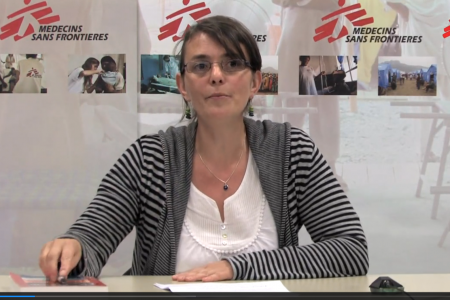 Conference
Conference
Living a Natural Disaster
11/03/2010 - 07:00 PM 09:00 PMPeople wandering through the rubble in Haiti, arms outstretched begging for help amid the floods in Pakistan: the media coverage of disasters invariably features helpless victims, overwhelmed by the disaster, waiting to be helped...
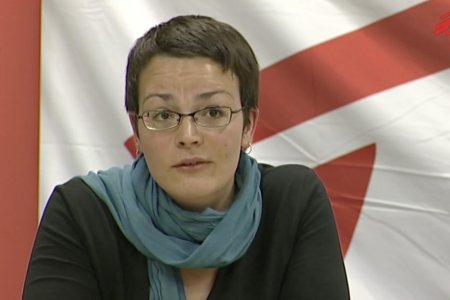 Lena Mucha
Conference
Lena Mucha
Conference
From their point of view
03/10/2009 - 07:00 PM 09:30 PMThe reasons why we are accepted, tolerated or sometimes rejected in the contexts where we work are often obscure. Caroline Abu-Sada and her team of sociology student shed some light on these issues.
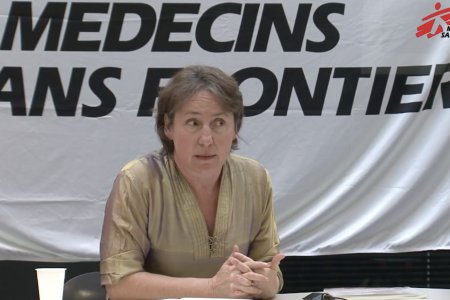 Jacob Zocherman
Conference
Jacob Zocherman
Conference
Grounds for divorce ? MSF and the international criminal court
04/08/2009 - 08:30 PM 10:30 PMIn 1998 MSF decided to support the creation of the International Criminal Court. 10 years later MSF stated that it ‘would not cooperate and would not transmit any information to the ICC'. How can we explain this change of position?

